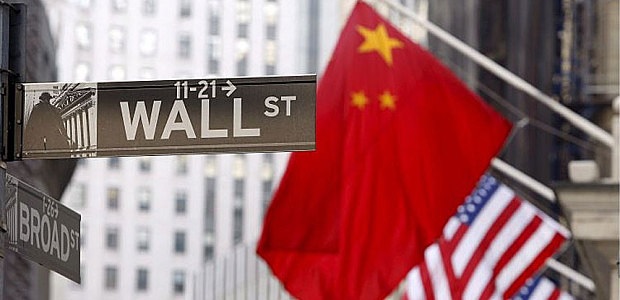
China’s government indicated that it plans to end a monopoly in bank-card clearing from June, paving the way for companies such as MasterCard Inc. and Visa Inc. to get a foothold in an industry that handles $73 trillion a year, according to Bloomberg. Both companies will have the ability to enter the market through local partnerships/units or acquisitions.
The development was tipped last fall, but the Chinese government just issued the official rules today. MasterCard (MA +3.4%) and Visa (V +4%) shoot higher after China opens up bank card processing to foreign firms.
Rules published Wednesday by the State Council allow for foreign firms to obtain licenses for such businesses by setting up units or acquiring local players. They take effect June 1, China’s cabinet said on its website.
China UnionPay Co. has previously been the sole clearing service provider for yuan-denominated bank-card payments.
China’s market opening would represent a “huge opportunity” for U.S. payment networks, FBR Capital Markets analyst Scott Valentin said in October, when the government indicated that it planned to end UnionPay’s monopoly. The World Trade Organization told the Asian nation in 2012 to stop discriminating against foreign payment firms, a group that includes American Express Co.
China had 4.9 billion bank cards at the end of 2014, according to the central bank. The value of credit and debit card transactions was 449.9 trillion yuan ($73 trillion) last year, it said in a statement on Wednesday. Such transactions include deposits, withdrawals, transfers and spending, a February report from the central bank shows. Card spending amounted to 42.38 trillion yuan last year, that report said.
By the end of last year, 48 percent of the nation’s retail sales were paid through bank cards, up from 4.7 percent in 2002, Wednesday’s statement showed.
Extra competition will mean better service and more convenience for consumers, the People’s Bank of China said.
Under the rules, institutions applying for clearing licenses must have at least 1 billion yuan of registered capital. Foreign firms must set up China units and get licenses if they provide such services for domestic clients.
While a license is not required for clearing foreign currency-denominated cross-border transactions, overseas firms will need to register with Chinese banking regulators, the State Council said.
Established in 2002 in Shanghai by the State Council and the central bank with shareholders including major Chinese banks, UnionPay has more than 4.6 billion bank cards in circulation, with a network across more than 150 countries, according to its website.
Banking 4.0 – „how was the experience for you”
„To be honest I think that Sinaia, your conference, is much better then Davos.”
Many more interesting quotes in the video below: